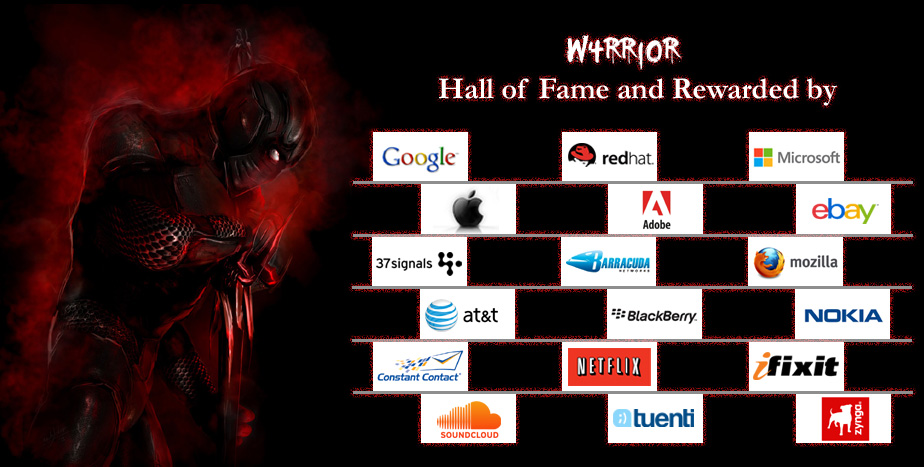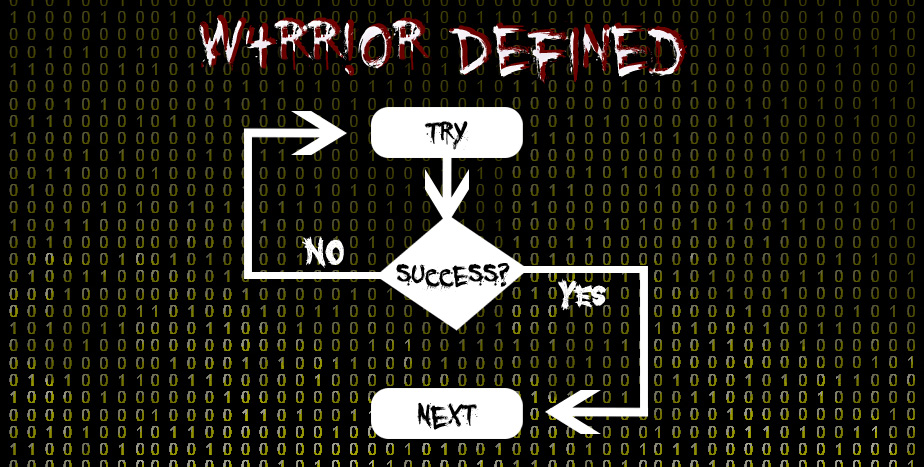W4RRI0R: H4CK!NG !S N0T 4 CR!M3 - IT'S AN ART OF AWARENESS
\/ w4rri0r \/ Hacking is not a crime - It's an art of Awareness. \/ w4rri0r gr0up \/ are the great resource for information security professionals and researcher. \/ w4rri0r mission \/ are to make the information systems more secure, more aware, more reliable and protect against possible security breaches.


SECURITY - HALL OF FAME AND REWARD
w4rri0r work in the dark, w4rri0r do what w4rri0r can, w4rri0r give what w4rri0r have, w4rri0r doubt is w4rri0r passion and w4rri0r passion is w4rri0r task. The rest is the madness of art. \/ w4rri0r \/ \/ w4rri0r \/ efforts being endorsed and appreciated by administrators, security researchers and members of various underground information security groups and communities worldwide as well as \/ w4rri0r \/ acknowledged as Security Researchers or Whit-hat Hacker or Ethical Hacker in world-known companies like Google, RedHat, eBay, iFixit, SoundCloud, Zynga and more…


GOOGLE TRUTHS: WHAT MANY PEOPLE DO NOT ABOUT GOOGLE?
Google Truths is the term used when a hacker tries to find vulnerable targets and sensitive data by using search engines. It is the art of using Google's ability to find top secrets of the web and even attain personal, revealing or illegal information.





